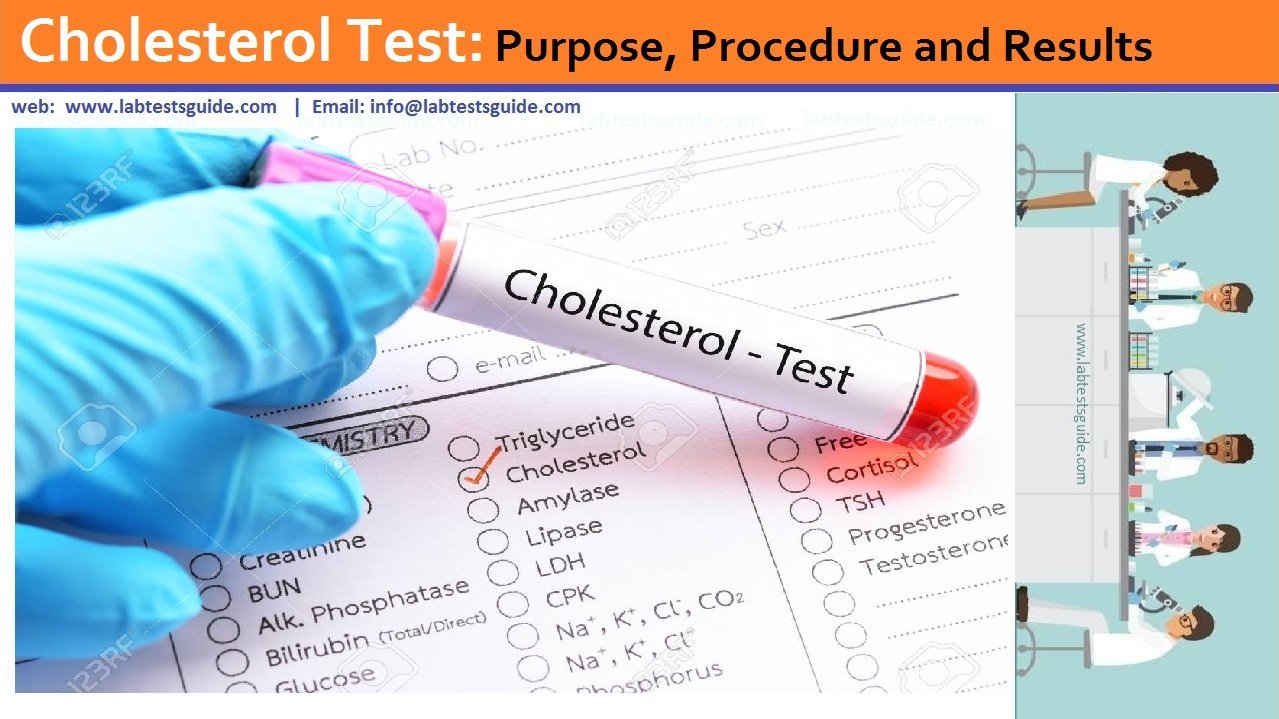E. coli (Escherichia coli), is a type of bacteria that normally lives in your intestines. It’s also found in the gut of some animals. Most types of E. coli are harmless and even help keep your digestive tract healthy. But some strains can cause diarrhea if you eat contaminated food or drink fouled water.

Specimen:
Specimen include urine, pus, faeces, cerebrospinal fluid (Infants), and blood for culture or depending upon site of infections.
Morphology:
E.coli is a gram negative usually motile rod. A minority of strains are capsulate.
Cultural Characteristics:
Escherichia coli is an aerobe and facultative anaerobe. Optimum Temperature for the growth of E.coli is 36 – 37 ºC with most strains growing over the range 18 – 44 ºC.
Blood Agar:
Colonies of E.coli on blood agar 1 – 4 mm diameter after overnight incubation. Colonies may also appear mucoid and some strains of E.coli is hemolytic.
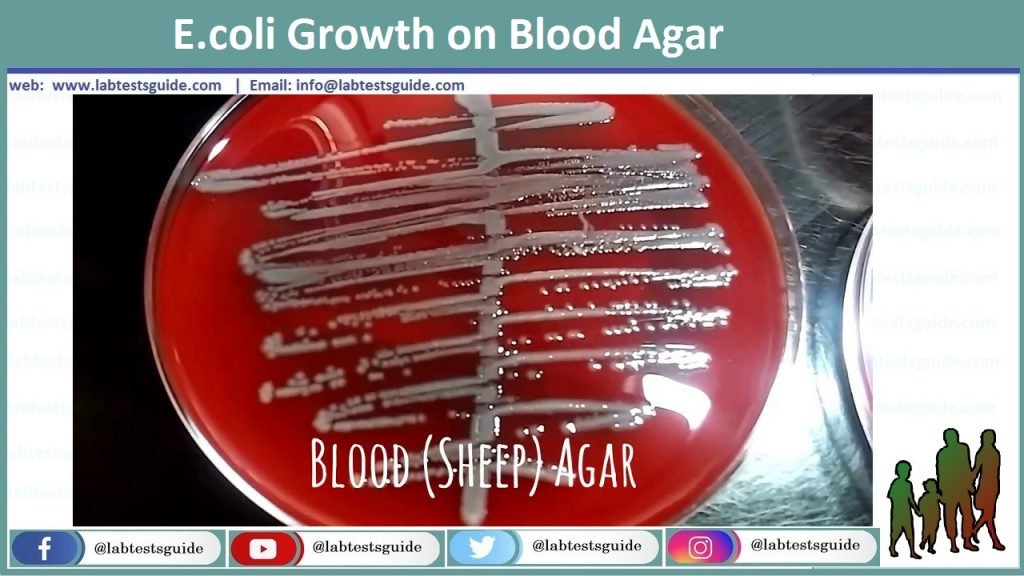
MacConkey agar:
Escherichia coli ferment lactose. They produced smooth pink color colonies on MacConkey Agar. Some Strains of E.coli are late or non-lactose fermenting.
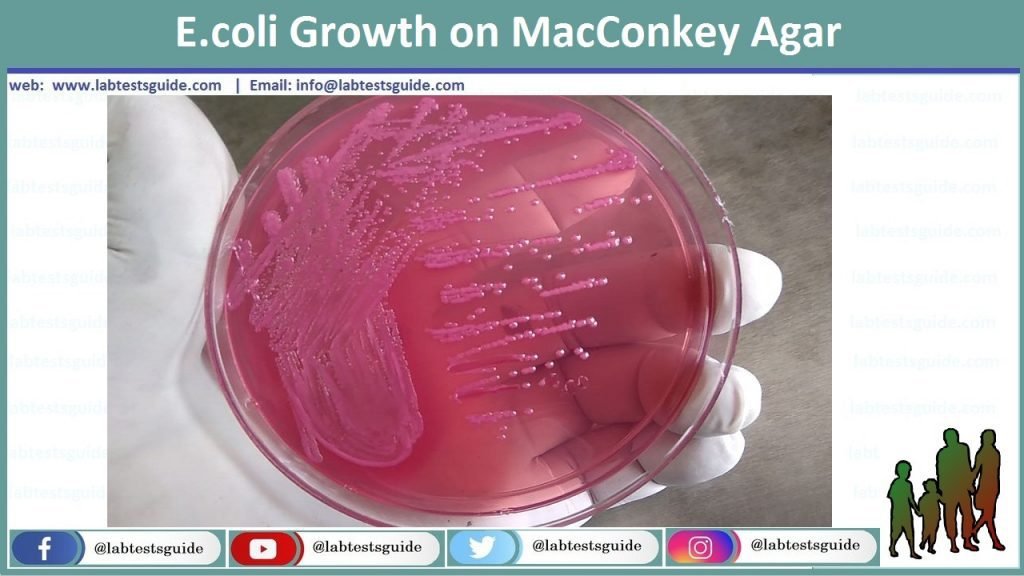
CLED Agar:
They produced yellow colonies on Cystine lactose electrolyte deficient (CLED) agar.
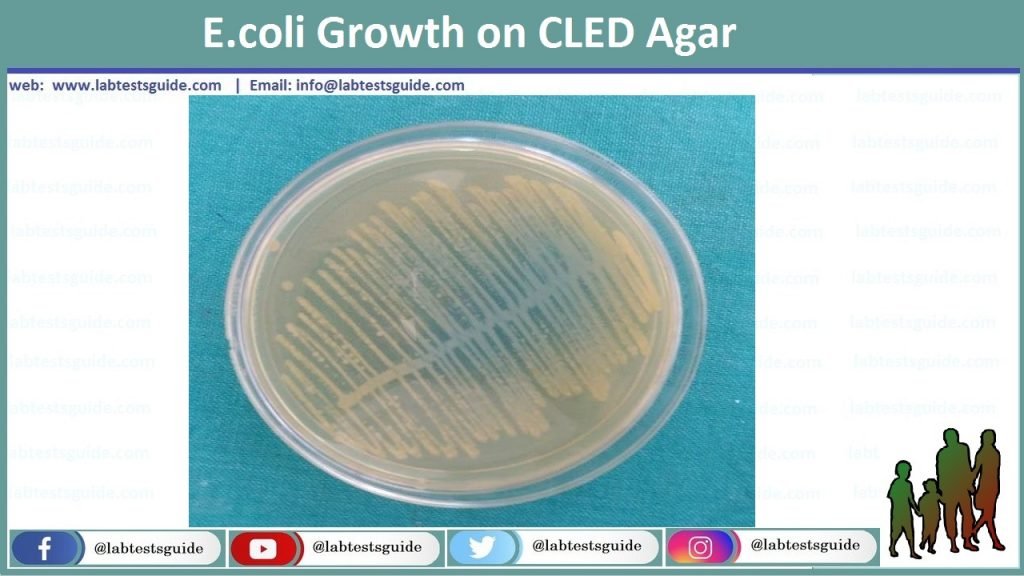
Sorbitol MacConkey Agar:
All strains of E.coli and other enterobacteria ferment sorbitol except E.coli (VTEC) 0157 in non-sorbitol fermenting. E.coli (VTEC) 0157 identified by latex reagent testing.
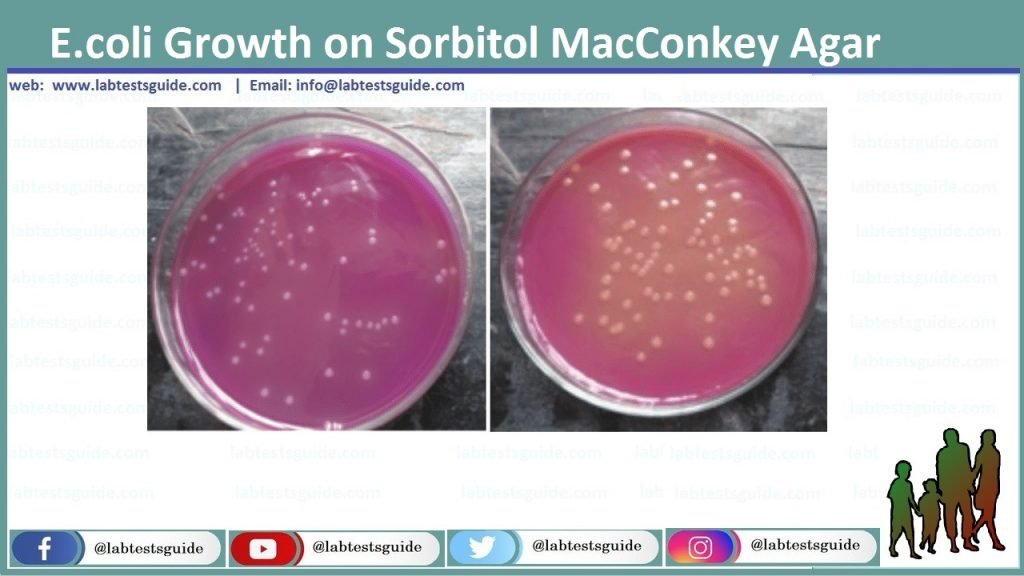
XLD Agar:
E.coli strains produced yellow color colonies on Xylose Lysine Deoxycholate agar (XLD agar).
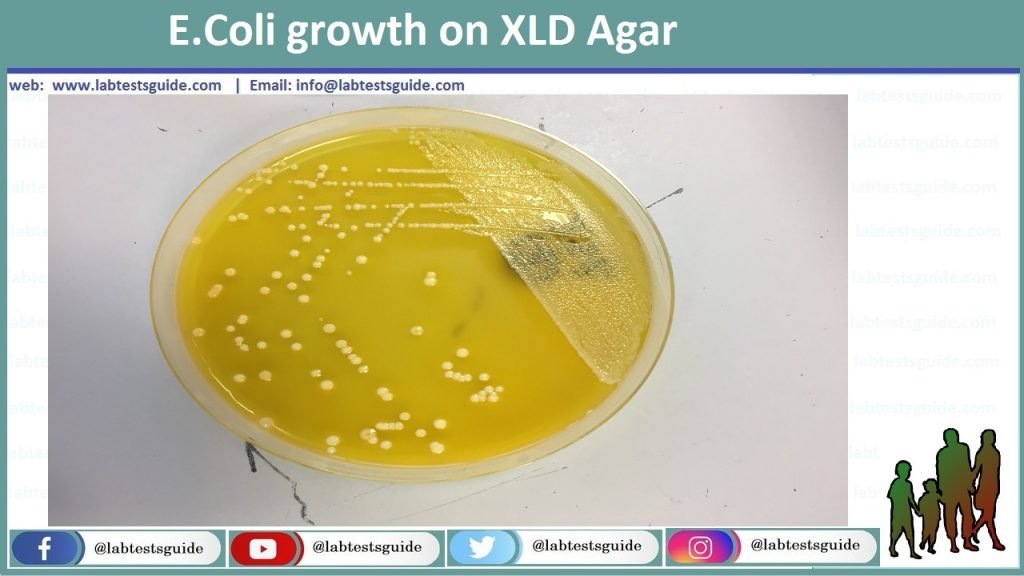
KIA (Kligler Iron Agar):
E.coli produce and acid deep and an acid slope with gas production and no H2S blacking.
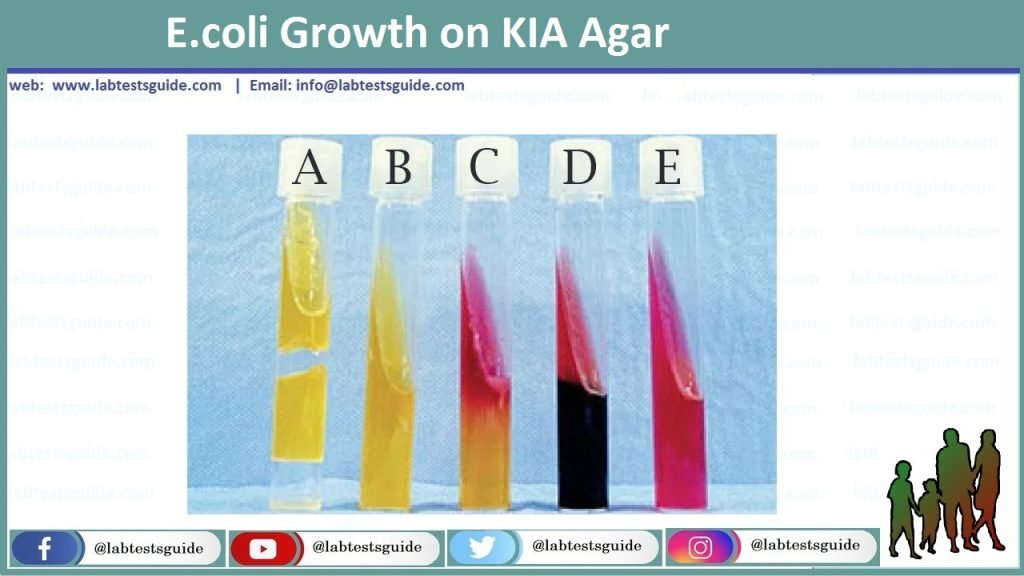
Biochemical Reactions:
Most Strains of E.coli:
- Lysine decarboxylase (LDC) positive.
- Indole Positive
- Beta-glucuronidase (PGUA) positive ( E.coli 0157 is PGUA negative).
- Reduce nitrate to nitrite, urine nitrite test positive.
- Citrate negative.
- H2S negative.
Antimicrobial susceptibility:
E.coli strains are sensitive to:
- Sulphonamides
- Trimethoprim
- Cotrimoxazole
- Nalidixic acid
- Nitrofurantoin
- Tetracycline
- Ampicillin
- Amoxycillin
- Cephalosporins
- Aminoglycosides
Diseases caused by E. coli are:
- Urinary tract infections (UTI)
- Gram-negative rod sepsis
- Neonatal meningitis
- Traveler’s diarrhea (watery diarrhea)
- Enterohemorrhagic strains of E.coli (i.e. Shiga toxin-producing E. coli ) cause bloody diarrhea and hemolytic uremic syndrome (HUS).
Related Articles:
RELATED POSTS
View all

